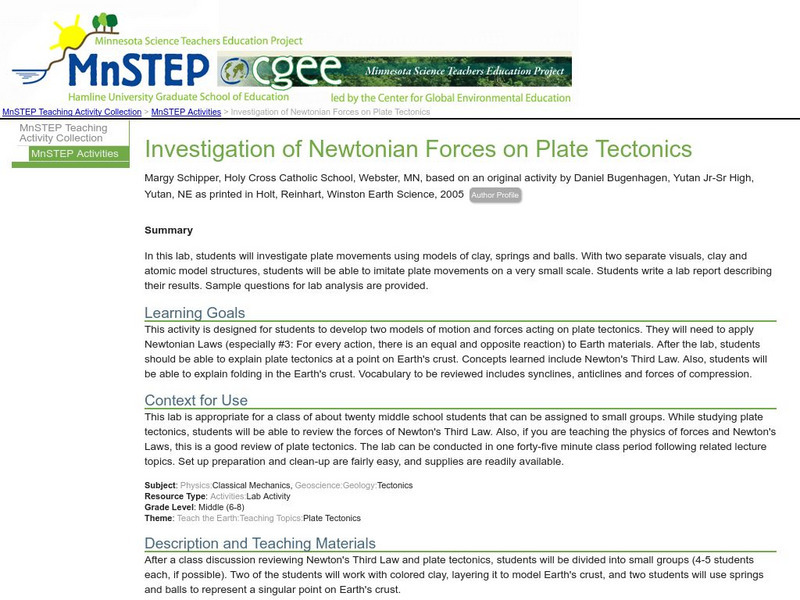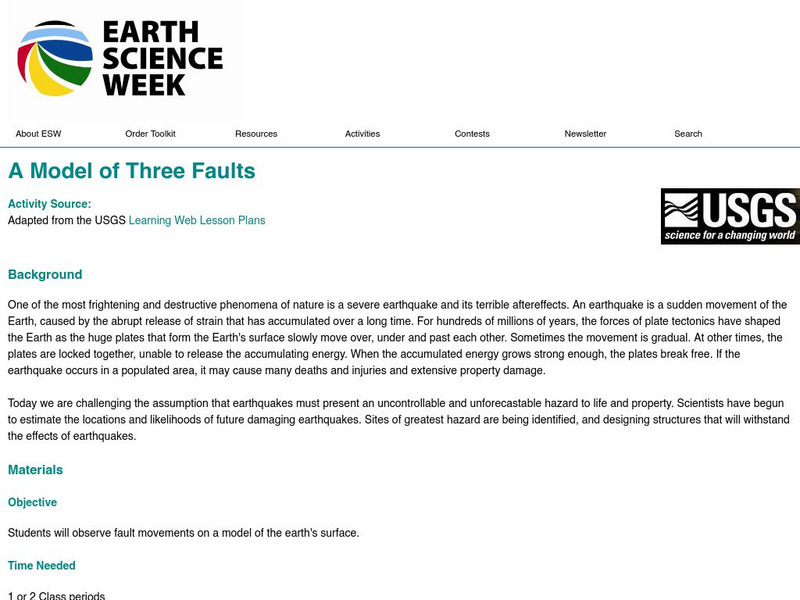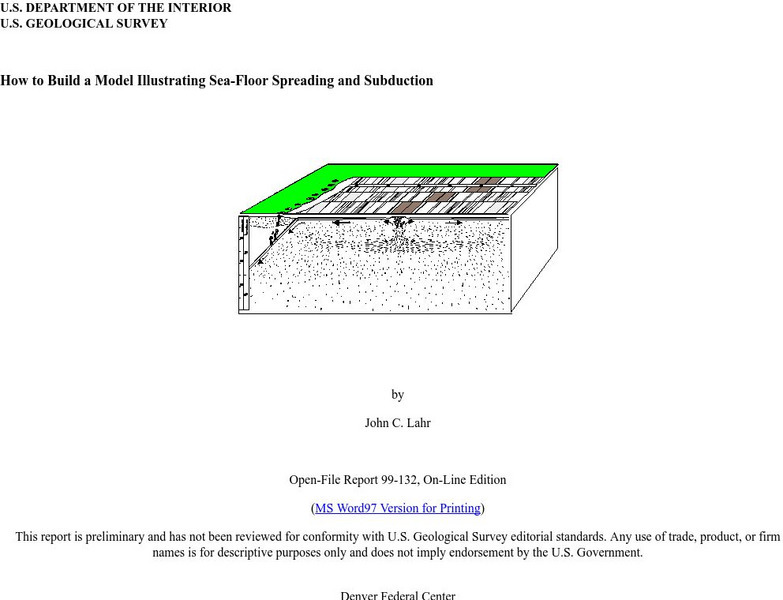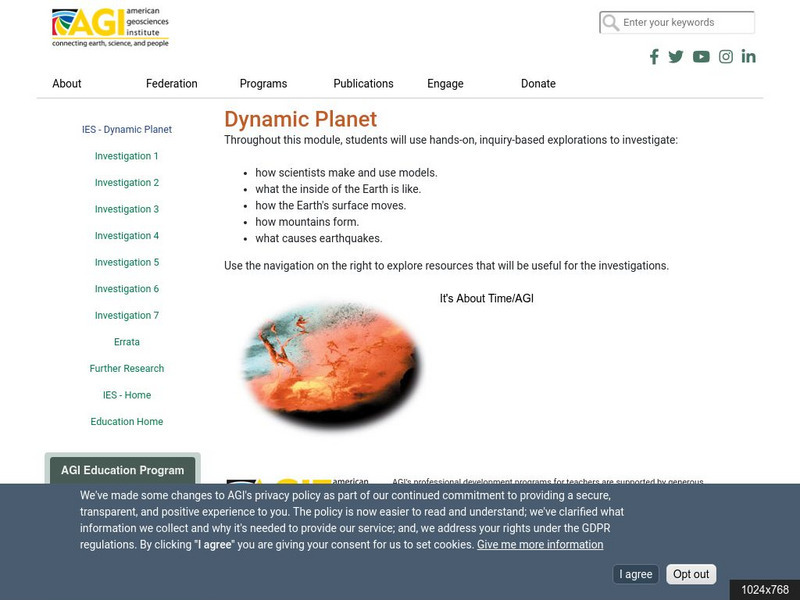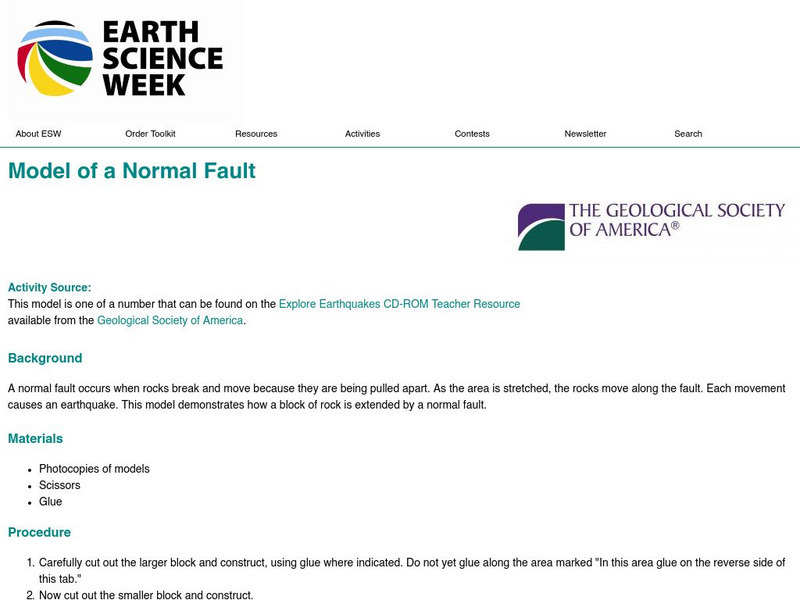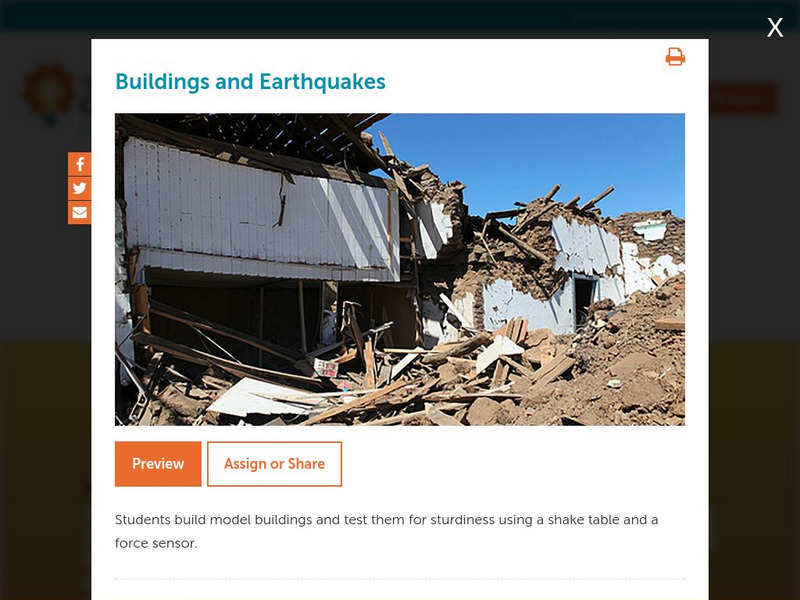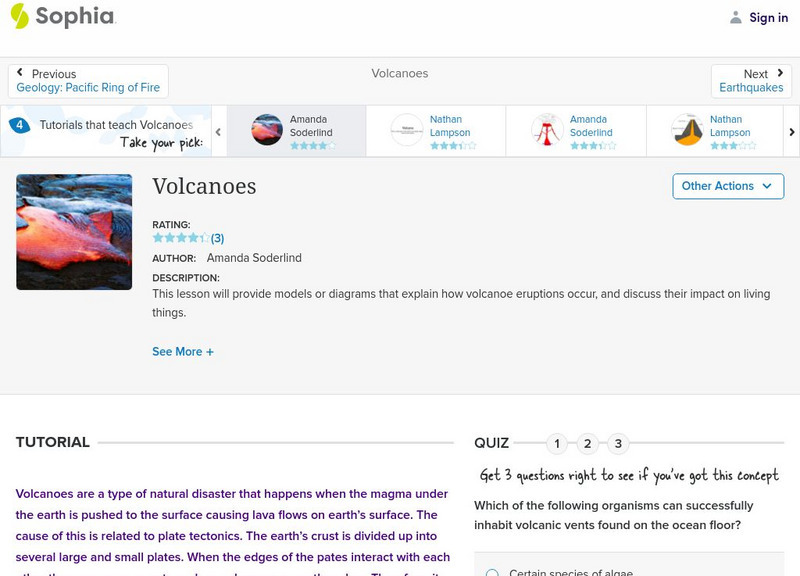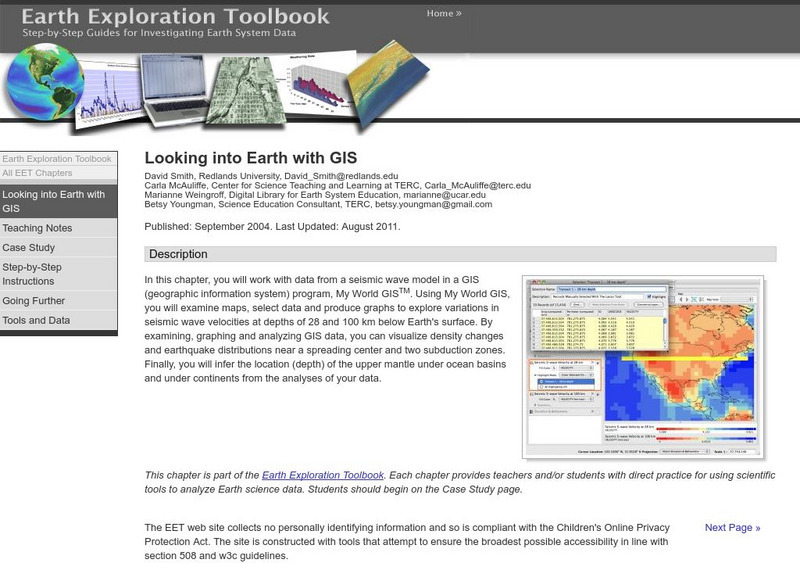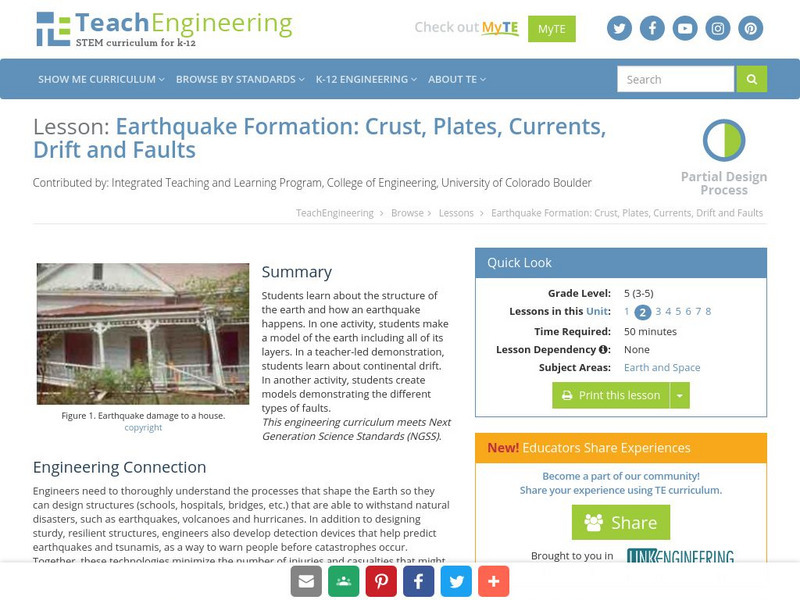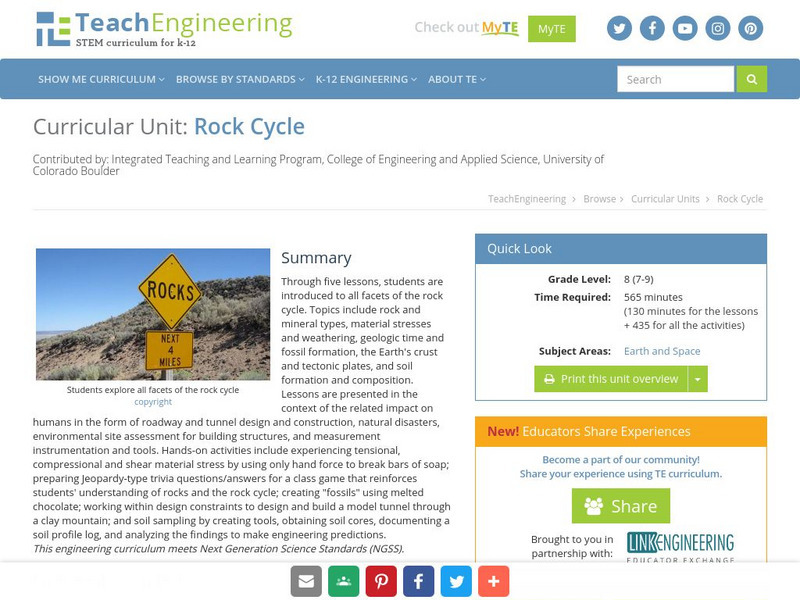Science Education Resource Center at Carleton College
Serc: Investigation of Newtonian Forces on Plate Tectonics
An investigation for students to understand plate tectonics by using models to see how motion and forces act on the plates. Students can use these models to see the connection between Newtonian Laws to Earth materials. Lesson plan...
American Geosciences Institute
American Geosciences Institute: Earth Science Week: A Model of Three Faults
In this lesson, students learn about the different kinds of faults and plate boundaries and where they can be found. They research and report on the faults that are present in their state. They are also asked to develop models of three...
National Earth Science Teachers Association
Windows to the Universe: Snack Tectonics
Young scholars create a model using food that simulates the layering and movement of tectonic plates. Overheads are provided that demonstrate different ways to position the graham crackers, frosting, and fruit roll-ups to emulate how the...
US Geological Survey
Usgs: How to Build a Model Illustrating Sea Floor Spreading
This is a comprehensive website featuring how to build a model that illustrates sea-floor spreading and subduction. It has diagrams and pictures reviewing major geological concepts.
Concord Consortium
Concord Consortium: Exploring Earth's Seismicity
This sequence is an introduction to plate tectonics using evidence from topographical maps, earthquake location and depth, and volcano location using the Seismic Explorer model to investigate patterns of earthquake data and to infer the...
American Geosciences Institute
American Geosciences Institute: Dynamic Planet
Seven hands-on lessons module where students learn about our dynamic planet. These inquiry-based explorations investigate scientific models, earthquakes and seismic waves, Earth's interior, Earth movements, the lithosphere, plate...
American Geosciences Institute
American Geosciences Institute: Earth Science Week: Model of a Normal Fault
Students construct a model that demonstrates how a block of rock is extended by a normal fault.
Science Education Resource Center at Carleton College
Serc: Hawaiian Islands: Volcano Ages, Hotspots and Plate Motion
The ages of volcanic rocks are used to investigate speed of motion of the Pacific plate, to analyze the distinctive bend in the chain, and to consider the age data in the context of a hotspot model of formation.
Science Education Resource Center at Carleton College
Serc: Fairly Simple Geology Exercises
A collection of geology exercises which include relevant background information, complete instructions, student handouts, and answer keys. Topics include rock and mineral identification, Bowen's reaction series, crystal models,...
Science Education Resource Center at Carleton College
Serc: Aboard Alvin
This Gulf of Maine educational website takes students aboard the submersible Alvin. It includes informational pages such as a project overview, as well as pages about Alvin, hydrothermal vents, and the researchers involved in the...
Incorporated Research Institutions for Seismology
Iris: Earthquake Machine: Basic One Block & Simple Graph Animated
Animation of the single-block "Earthquake Machine" model shows how "Forces, Faults, and Friction" interact. [0:16]
Concord Consortium
Concord Consortium: Stem Resources: Buildings and Earthquakes
Do you think you can build a house that can withstand the shaking from an earthquake? In this activity, students design and construct model building that will be tested on a shake table with a force sensor. Activity includes questions...
National Association of Geoscience Teachers
Nagt: Bringing the Geologic Time Scale Down to Earth in the Students' Backyard
This activity is specifically designed for a field trip to Drayton Hall, which is a historic plantation near Charleston, South Carolina. It does provide a model of how a similar activity could be designed for a local area, and there are...
TeachEngineering
Teach Engineering: Faulty Movement
In this activity, students are introduced to faults. They will learn about different kinds of faults and understand their relationship to earthquakes. The students will build cardboard models of the three different types of faults as...
Sophia Learning
Sophia: Volcanoes: Lesson 5
This lesson will provide models or diagrams that explain how volcanic eruptions occur, and discuss their impact on living things. It is 5 of 5 in the series titled "Volcanoes."
Science Education Resource Center at Carleton College
Serc: Looking Into Earth With Gis
Multi-instructional activity activity where learners will work with data from a seismic wave model in a GIS (geographic information system) program. They will examine maps, select data, and produce graphs to explore variations in seismic...
TeachEngineering
Teach Engineering: Earthquake Formation
Students learn about the structure of the earth and how an earthquake happens. In one activity, students make a model of the earth including all of its layers. In a teacher-led demonstration, students learn about continental drift. In...
TeachEngineering
Teach Engineering: Rock Cycle
Through five lessons, students are introduced to all facets of the rock cycle. Topics include rock and mineral types, material stresses and weathering, geologic time and fossil formation, the Earth's crust and tectonic plates, and soil...


